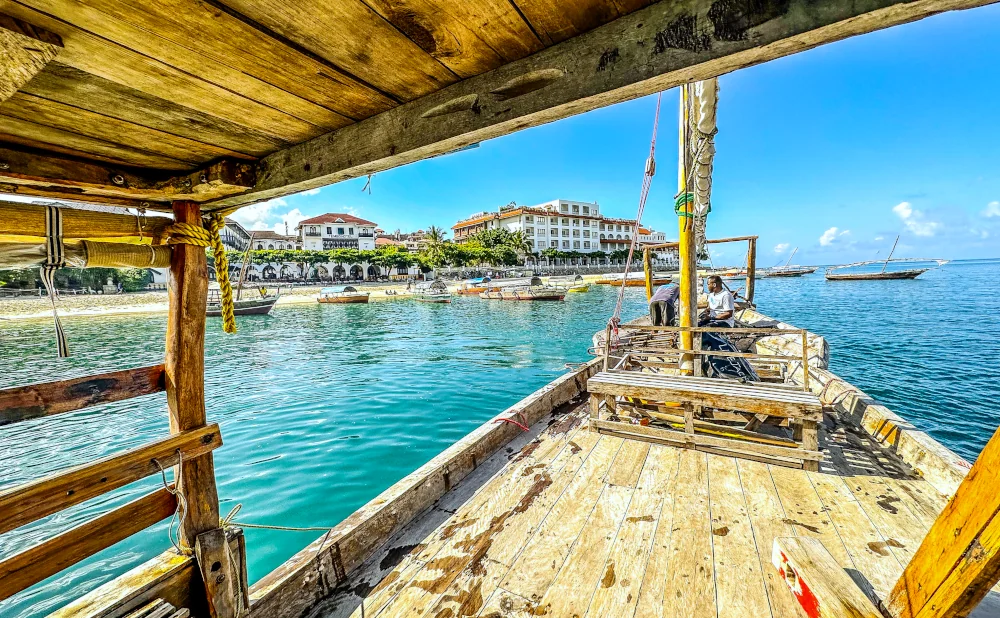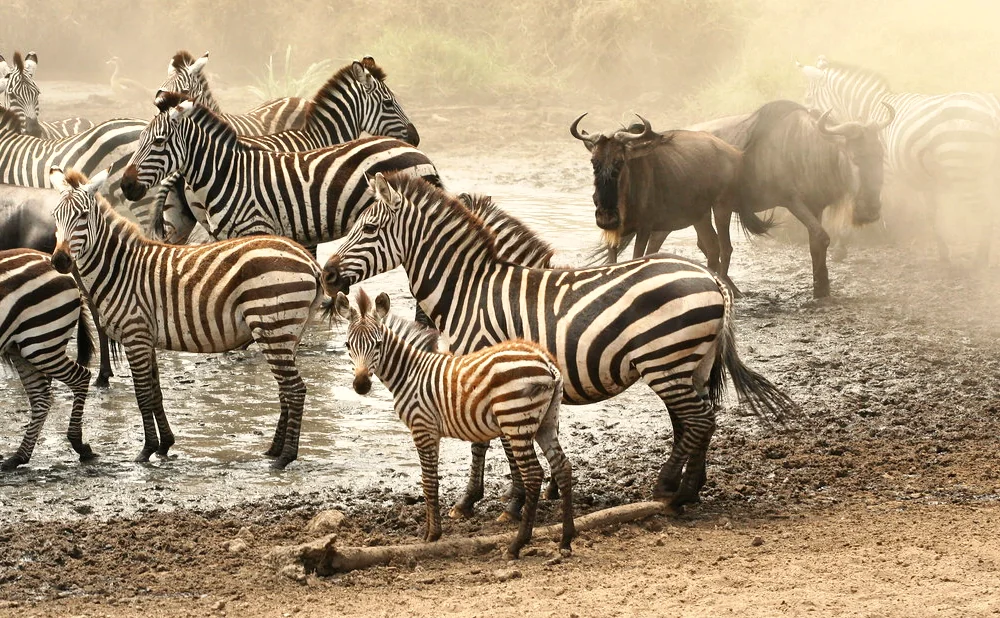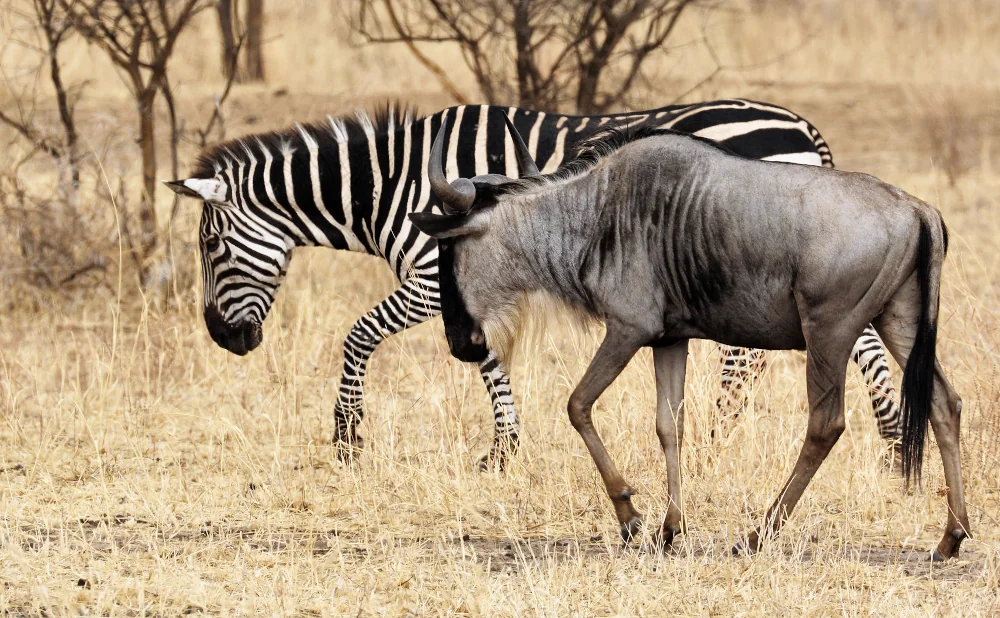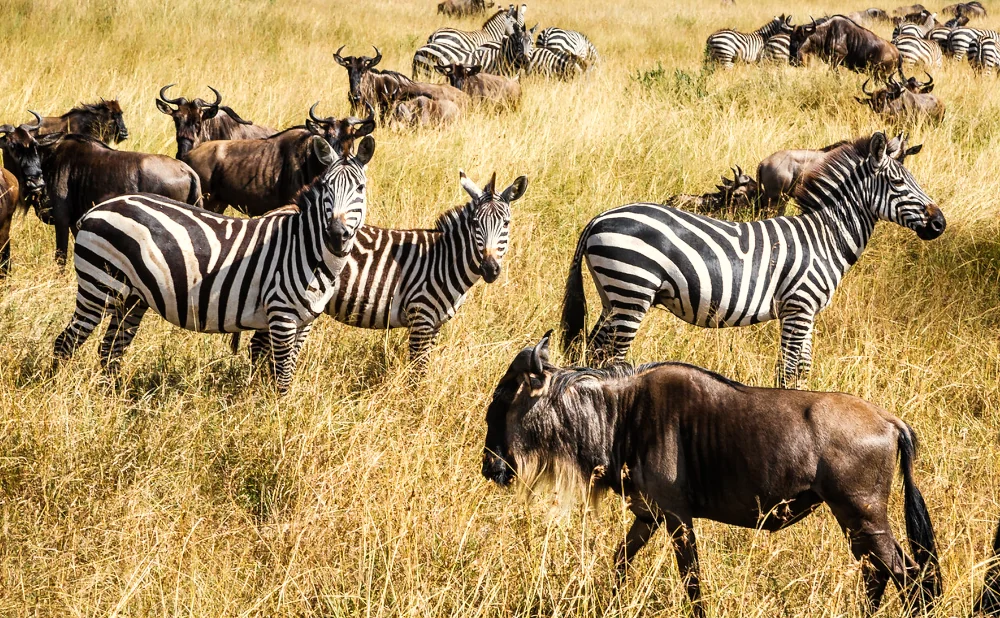Nestled in the heart of Africa, Lake Tanganyika is a marvel of nature.
Its waters, teeming with life, hold a world of wonders waiting to be explored.
This ancient lake, the second oldest and second deepest freshwater body on the planet, is a biodiversity hotspot. It is home to a myriad of species, many of which are found nowhere else in the world.
From the vibrant African cichlids to the diverse birdlife, Lake Tanganyika is a paradise for nature enthusiasts and eco-tourists alike.
In this article, we delve into the rich biodiversity of Lake Tanganyika, explore the unique safari tours it offers, and discuss the importance of conservation efforts in preserving this natural treasure.
Whether you're an aquarium hobbyist, a conservationist, or simply a lover of nature, join us on this journey to discover the wonders of Lake Tanganyika.
Lake Tanganyika: A Natural Wonder
Lake Tanganyika, located in the Great Rift Valley, is a spectacle of natural beauty.
Its clear waters, sandy beaches, and surrounding landscapes of mountains and forests create a picturesque setting.
The lake is bordered by four countries: Burundi, the Democratic Republic of Congo, Tanzania, and Zambia. It serves as a vital resource for these local communities, providing water, food, and transportation.
With a unique geological history dating back over 9 million years, Lake Tanganyika has evolved into a unique habitat, fostering an exceptional level of biodiversity.
The Unique Ecosystem of Lake Tanganyika
Lake Tanganyika is renowned for its rich biodiversity. It is home to over 1,500 species, many of which are endemic to the lake.
This biodiversity is a result of the lake's unique conditions. The alkaline water, with a pH ranging from 8.4 to 9.4, creates a distinct habitat for its inhabitants.
The lake's depth also plays a significant role in shaping its ecosystem. The upper sunlit layer supports most of the fish life, while the environment below 200 meters is low in oxygen, limiting the types of species that can survive there.
This unique ecosystem supports a variety of wildlife, including:
- Over 250 species of cichlid fish
- Various species of crocodiles and hippos
- Numerous bird species
Lake Tanganyika's ecosystem is a testament to the resilience and adaptability of life in extreme environments. It is a natural wonder that continues to fascinate scientists and nature enthusiasts alike.
African Cichlids: Jewels of Lake Tanganyika
Lake Tanganyika is home to at least 250 species of cichlid fish. These fish are a major attraction for aquarium enthusiasts due to their vibrant colors and diverse range of shapes and sizes.
The lake's cichlids have evolved through adaptive radiation. This process is where species diversify rapidly to fill different ecological niches. It has resulted in a wide range of behaviors, including complex mating rituals and parental care strategies.
Cichlids are not only ecologically important but also have economic value for the aquarium trade. Lake Tanganyika fish for sale often come from sustainable breeding programs to protect wild populations.
These fascinating fish are a testament to the lake's unique biodiversity. They are a source of fascination for scientists due to their rapid speciation and genetic diversity.
Safari Tours: Immersing in the Lake's Splendor
Safari tours around Lake Tanganyika offer a unique perspective on the interconnectedness of land and aquatic ecosystems. They provide opportunities to witness its wildlife and visit local fishing villages.
The lake's tourism industry, including safari tours, plays a role in promoting conservation awareness among visitors. These tours often include educational components to teach about the importance of biodiversity and conservation.
Lake Tanganyika safari tours can also include bird watching. The region is home to over 100 species of birds, adding another layer to the rich biodiversity of the area.
Conservation Efforts and Sustainable Practices
Conservation efforts are crucial to protect Lake Tanganyika's unique ecosystem. Threats such as overfishing, pollution, and climate change pose significant challenges.
Efforts to maintain the lake's biodiversity include establishing protected areas and regulating fishing practices. The lake's fisheries are managed through a combination of traditional practices and modern conservation techniques.
Lake Tanganyika's conservation challenges also include addressing the impacts of climate change and human population growth. Balanced development and environmental stewardship are needed to ensure the lake's future.
Lake Tanganyika's Fish: From the Wild to the Aquarium
Lake Tanganyika's fish are a primary source of protein for millions of people living in the surrounding regions. They also have economic value for the aquarium trade.
Lake Tanganyika fish for sale in the aquarium trade often come from sustainable breeding programs. These programs aim to protect wild populations from overfishing.
Popular species like the Frontosa and Tropheus are among the lake's fish for sale. These fish are known for their vibrant colors and unique shapes.
Responsible sourcing is essential when purchasing Lake Tanganyika fish. This ensures the survival of species and the health of the lake's ecosystem.
The Cultural and Economic Significance of Lake Tanganyika
Lake Tanganyika plays a vital role in the local economy. It provides water, food, and transportation for the surrounding communities.
The lake's fisheries are an important economic resource. However, sustainable practices are needed to prevent depletion.
Lake Tanganyika's cultural significance is reflected in the traditions and practices of the local communities. These communities play a crucial role in its preservation.
Balanced development and environmental stewardship are necessary. This ensures the lake's role in the local economy is maintained for future generations.
The Future of Lake Tanganyika
Lake Tanganyika's future hinges on our ability to balance conservation and human needs. Addressing the impacts of climate change and population growth is crucial.
The lake's natural beauty and ecological significance make it a destination worth protecting. Its unique biodiversity is a testament to the resilience and adaptability of life in extreme environments.
By promoting sustainable practices and raising awareness, we can ensure Lake Tanganyika remains a vibrant ecosystem. Its cultural and natural heritage can continue to inspire and sustain future generations.











